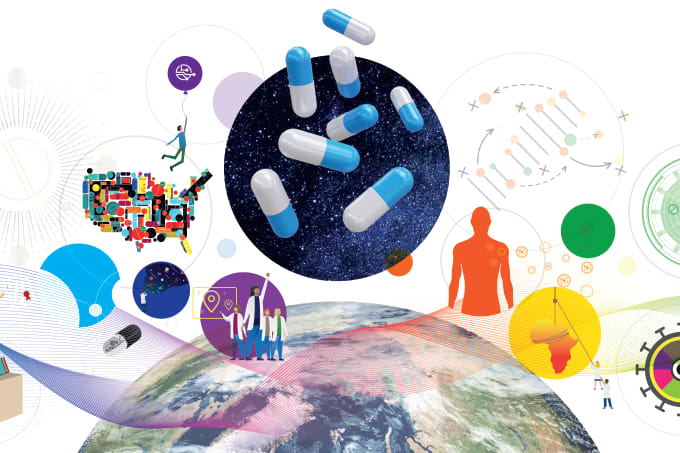Green BioPharma is an extension of the group-wide Green Chemistry program and focuses on the design, development and implementation of biological and chemical products and processes that reduce or eliminate the use and generation of substances hazardous to human health and the environment. We spoke to Green BioPharma Program Manager Kristi Budzinski to find out more.
What was the main catalyst for the scheme? The catalyst was really employee interest. Our employees are very engaged in sustainability and wanted to merge that with the scientific work they do. We hosted a ‘lunch and learn’ session on Green Chemistry, which further piqued employee interest in having a scientific approach to greening R&D. As Genentech became more integrated with Roche, we became more active in their technical working group on Green Chemistry and wanted to develop a similar program for large molecules, giving rise to Green BioPharma.
How environmentally unfriendly are labs? Laboratories have unique environmental challenges. Biology experiments have stringent sterility needs, which are met through higher air change rates than your typical office environment and the use of single-use supplies, mostly made of plastics. These plastic supplies are typically not labeled for recycling and may be perceived as unrecyclable by local municipalities. Additionally, numerous pieces of small electronic equipment are used to analyze samples and collect data, and until recently this equipment was not necessarily designed for energy efficiency, resulting in a large plug load. Biological samples, in particular, must be stored at low temperatures (-80 °C) for long-term preservation. These freezers use enormous amount of energy, often as much energy as two or three households every year. Recently, we have begun switching out older, inefficient freezers with new Stirling freezers, which use half as much energy and can be cooled using non-halogenated refrigerants.
How do individual Genentech labs get involved? Individual lab assessments provide a specific environmental footprint summary in terms of energy use, cold storage use, waste generation, and supplies. We provide lab managers with a list of recommendations for greening their lab based on this data. Some examples include using programmable timers to turn equipment off overnight and on weekends, increasing awareness of lab recycling (for example, by adding appropriate collection containers), and recommending green supplies (non-hazardous alternatives, less packaging, more efficient assays, and so on). Labs that complete 50 percent of the recommendations receive a "Green Lab" flag that designates them as a peer resource for other labs to learn about greening up their space. Why has the program been such a success? The tremendous support from both employees and management have really made the program a success. We have a cross-functional steering committee with representatives from major functions within Genentech who help set long-term goals, provide project support, and raise awareness within their functions. Environment, Health, and Safety adopted Green BioPharma as a beyond-compliance program and provided full-time program management support, which allows for more thorough data collection, metrics building, and project follow through.
How would you advise other companies who want to set up a similar scheme? Establish both top down and bottom up support. Make sure that the program manager has laboratory experience so that he or she can speak the same language as the scientists. Most importantly, use data to drive projects and gain support – scientists love data!




